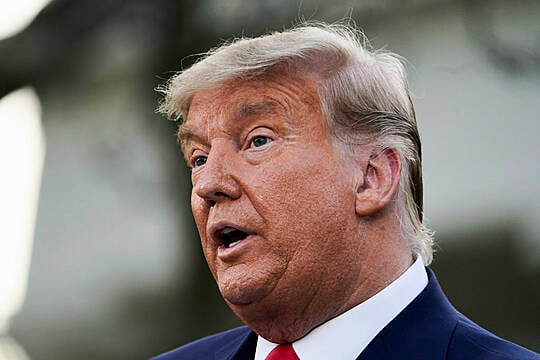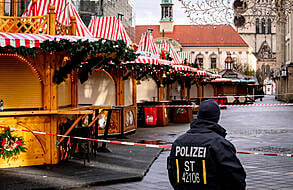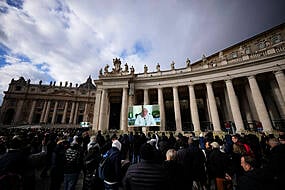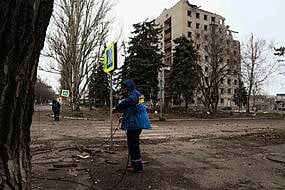Donald Trump has said only “time will tell” who will be in the White House next year in his first public remarks since Joe Biden was declared the winner of the US presidential election.
Mr Trump said that he refuses to have another lockdown despite coronavirus cases surging across the country, but suggested one could happen should he lose his legal challenges to overcome his election loss to President-elect Joe Biden.
In comments at the White House Rose Garden, Mr Trump repeated his long-held argument that government restrictions meant to stem the virus cause more problems than they solve.
But Mr Trump, who has refused to concede his election loss, made clear that the decision might not be up to him.
“This administration will not be going to a lockdown,” he said. “Hopefully whatever happens in the future, who knows, which administration it will be, I guess time will tell, but I can tell you this administration will not go to a lockdown.”
Mr Biden has not said whether he would order a lockdown, but in the week since he won the election the Democrat has devoted most of his public remarks to encouraging Americans to wear a mask and view the coronavirus as a threat that has no regard for political ideology.

Meanwhile, Republicans suffered setbacks to court challenges over the election in three battleground states on Friday while a law firm that came under fire for its work for Mr Trump’s campaign withdrew from a major Pennsylvania case.
The legal blows began when a federal appeals court rejected an effort to block about 9,300 mail-in ballots that arrived after election day in Pennsylvania.
The judges noted the “vast disruption” and “unprecedented challenges” facing the nation during the Covid-19 pandemic as they upheld the three-day extension.
Chief US Circuit Judge D Brooks Smith said the panel kept in mind “a proposition indisputable in our democratic process: that the lawfully cast vote of every citizen must count”.
The ruling involves a Pennsylvania Supreme Court decision to accept mail-in ballots through to Friday, November 6, citing the pandemic and concerns about postal service delays.
Republicans have also asked the US Supreme Court to review the issue.
However, there are not enough late-arriving ballots to change the results in Pennsylvania, given Mr Biden’s lead. The Democratic former vice president won the state by about 60,000 votes out of about 6.8 million cast.
The Trump campaign or Republican surrogates have filed more than 15 legal challenges in Pennsylvania as they seek to reclaim the state’s 20 electoral votes but have so far offered no evidence of any widespread voter fraud.
A Philadelphia judge found none as he refused late on Friday to reject about 8,300 mail-in ballots there. The campaign has pursued similar litigation in other battleground states, with little to show for it.
In Michigan, a judge on Friday refused to stop the certification of Detroit-area election results, rejecting claims the city had committed fraud and tainted the count with its handling of absentee ballots.
It is the third time a judge has declined to intervene in a state-wide count that shows Biden up by more than 140,000 votes.
And, in Arizona, a judge dismissed a Trump campaign lawsuit seeking the inspection of ballots in metro Phoenix after the campaign’s lawyers acknowledged the small number of ballots at issue would not change the outcome of how the state voted for president.
The campaign had sought a postponement of Maricopa County’s certification of election results until ballots containing overvotes — instances in which people voted for more candidates than permitted — were inspected.
Meanwhile, legal giant Porter Wright Morris & Arthur, which had come under fire for its work for the Trump campaign, withdrew from a lawsuit that seeks to stop Pennsylvania officials from certifying the election results.
Porter Wright filed the motion on Thursday, as criticism grew that law firms backing the Republican election challenges were helping Mr Trump defy the will of the American people.







